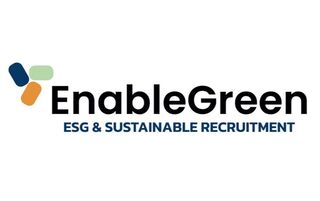|
In the changing world of sustainability reporting, the UK and EU Sustainability Regulation frameworks have just made a big step towards a consistent, clear and complete disclosure. The introduction of the UK Sustainability Disclosure Standards (SDS) and the EU -European Sustainability Reporting Standards (ESRS) marks a pivotal moment in the pursuit of transparency and accountability in the corporate world. These standards are poised to align with the ISSB - International Financial Reporting Standards (IFRS) Sustainability disclosure and the Global Reporting Initiatives Guidelines, creating a robust foundation for sustainable business practices. This article is aimed at ESG practitioners, organisations, professionals, or students seeking to gain a comprehensive understanding, further their knowledge, or stay updated on the latest developments in sustainability practices.
UK SDS: Defining the Future of Sustainability Reporting
While the UK SDS is still in the process of being finalized and officially implemented, its impending arrival in 2024 is generating considerable anticipation. This forthcoming standard is expected to establish itself as the definitive sustainability reporting framework in the UK. Notably, the UK SDS may introduce a UK Green Taxonomy, mirroring the EU's sustainability legislation. This move aims to streamline reporting by unifying existing requirements, including Streamlined Energy and Carbon Reporting (SECR), Task Force on Climate-related Financial Disclosures (TCFD), and the Energy Saving Opportunity Scheme (ESOS) into a comprehensive annual sustainability reporting mandate.
The UK SDS's scope is set to cover a range of elements, including ISSB S1 and S2 reporting, which encompasses the TCFD recommendations and even extends to Scope 3 emissions. A key highlight is the inclusion of a detailed transition plan outlining the path towards achieving net-zero emissions. Additionally, the standard will incorporate non-climate sustainability and Environmental, Social, and Governance (ESG) reporting, further augmenting its comprehensive nature, ensuring alignment with GRI guidelines. EU ESRS: Forging a Unified Approach to Sustainability Disclosure
In the European Union, EFRAG has taken a significant leap towards the ESRS's enforcement with its adoption in July 2023, expected to be fully enforced by October 2023. Interoperability has been a guiding principle throughout the development of the ESRS, aiming to ensure cohesion with established standards. The final iteration of ESRS exhibits a robust alignment with ISSB S1 and S2 and GRI guidelines, while also incorporating financial materiality. Furthermore, it includes requirements for signposting disclosures related to downstream regulations like the Sustainable Finance Disclosure Regulation (SFDR).
Importantly, the ESRS takes a comprehensive stance by extending its scope beyond climate change reporting. It delves into the Social and Governance dimensions of sustainability, encompassing areas such as the workers' value chain, consumers, affected communities, and business conduct. This holistic approach underscores the importance of balancing economic, social, and environmental considerations for holistic sustainability. On September 5th, the European Financial Reporting Advisory Group (EFRAG) and the Global Reporting Initiative (GRI) have jointly announced a significant achievement. They have successfully ensured strong compatibility between the European Sustainability Reporting Standards (ESRS) and the GRI Standards. A Converging Framework: Bridging Sustainability and Financial Disclosures
SDS, ESRS and ISSB Standards all converge around a shared framework that draws inspiration from the pillars of the Task Force on Climate-related Financial Disclosures (TCFD). This framework revolves around Governance, Strategy, Risk Management, Metrics & Targets, underpinning a systematic and comprehensive approach to disclosure. These standards establish a universal foundation for disclosures related to sustainability, ensuring that businesses across the globe adhere to uniform guidelines when reporting climate-related data. This approach guarantees a coherent framework for the consistent communication of climate-related information.
Reducing the Burden and the Risk of Double Reporting
The uniformity or 'high degree of interoperability', as indicated by the European Commission, among these standards will significantly ease the burden of sustainability disclosure for many companies. This achievement notably reduces the risk of "double reporting," where companies would have to disclose sustainability information based on different sets of standards.
At EnableGreen ESG and Sustainable Recruitment, we recognise the significance of these developments. The UK and the EU are trailblazing with some of the world's most advanced sustainability laws and reporting requirements. Governments are enacting policies to support Net Zero 2050 targets, enhance consistency and transparency in reporting, all while ensuring corporations can progressively adapt to the evolving landscape. The path to consistent sustainability disclosure is being paved through collaboration, standardisation, and a globally shared vision for a more sustainable future.
EnableGreen stands at the crossroads of this transformative journey, committed to connecting organisations with professionals who can adeptly navigate the sustainability standards and assume a crucial role in championing the sustainability narrative for the years ahead. If you are an organisation looking to expand your team or a professional seeking a career change in the ESG and Sustainability field, feel free to get in touch at [email protected] Author: Hayatte Loukili
0 Comments
Leave a Reply. |
AuthorWrite something about yourself. No need to be fancy, just an overview. Archives
April 2024
Categories |


 RSS Feed
RSS Feed
